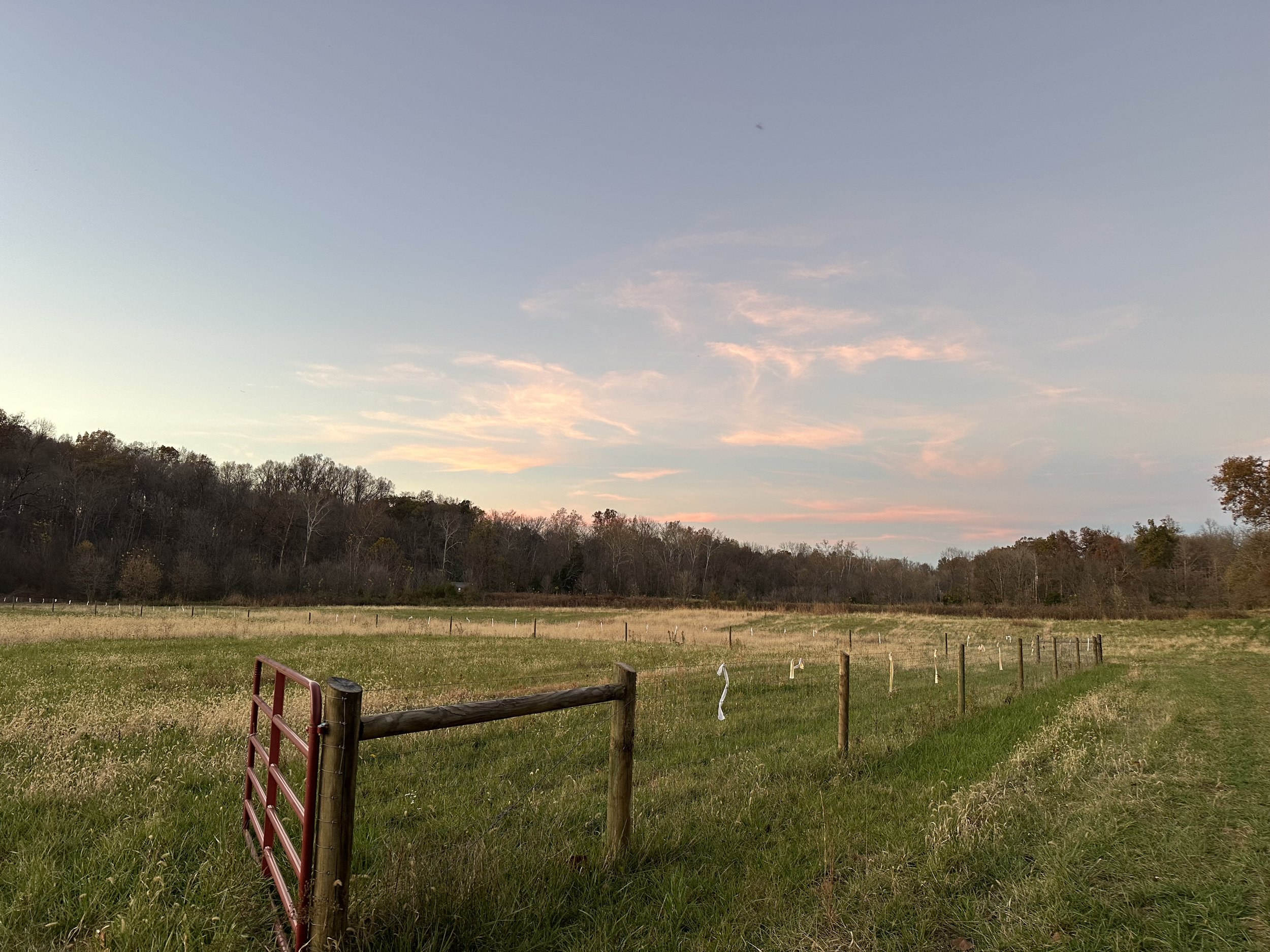
Frequently asked questions.
FAQs
-
Edgewood Farm is a small family-owned and operated farm in Elizabeth, Indiana. Our goal is to create a sustainable farming operation to be able to provide fruits, vegetables, and animal products to our local community while also giving back to the land. We pride ourselves on using sustainable farming methods like crop rotation, heirloom cultivation, pasture raised and free range animals, natural pest management, rotational grazing, and agroforestry. We plant local wildflowers as “cover crops” in available areas to help support local pollinators, choose sustainable energy sources like solar power and well water for outbuildings and animal barns, and choose sustainable ways to handle pest and predator populations instead of disrupting indiginous animal species.
-
No, we are not certified organic. To do so requires us to pay for inspections, licensing, and other requirements that are little more, at this point, than a marketing tool. While we pride and encourage other farms to do so if they can and if it benefits them, it’s not something that we’re interested in pursuing at this time. That being said, we’re very transparent about our farming practices. We will have blog posts and videos available that show how we farm and what we use for fertilization (composting) and pest management (natural options like herbs that repel pests).
-
At this time we are building our CSA program for our 2025 season. This year we’ll be offering 10 full-season shares and 10 each of the first six week and second six week shares. We’ll be building up our CSA garden but also offering some extra produce for sale during the season from our test garden and shop garden. We’re hoping to open our on-site farm store in the late spring or early summer of 2025 so please check back for updates.
-
Community Supported Agriculture is a small-farm business model that allows us to grow produce and provide people with fresh fruits and vegetables without creating a significant amount of waste. A CSA program works almost like a subscription box where, at the beginning of a season (normaly late winter and early spring), you purchase a “share” or portion of produce for a set price. These are often available as full and half-shares. We are able to control the number of CSA shares available in a given year depending on soil conditions, weather predictions, and our abilities and expectations for what we can produce in that growing season. Once you have “subscribed” or purchased your CSA, once a week you will receive your share of the produce. Sometimes this can be a gamble. There is no guarantee that it will be a good growing season for certain things, a bad storm, drought, or unfavorable conditions may make your hope of getting fresh strawberries in May impossible, but it does allow you to get the freshest seasonable produce available for an excellent price.
-
Sure! Let’s say that in March, we assume that on Edgewood Farm, we’ll be able to provide fresh produce for 25 families during our growing season. We’ve made this decision based on soil testing, weather predictions, space available to us, etc. In March, we’ll put information online stating that we have 25 CSA shares available for an 8-week season from May 15th to July 10th for $200 per share or $25 a week. We’ll also let you know what we’re planting. So let’s say we decided to plant lettuce, peas, spinach, corn, and carrots.
It’s now May 15th and you’re getting ready to pick up your first box. That morning we will have picked all the available produce, weighed it, and divided it into 25 portions so everyone gets their share. Early in the season, you may get a box with 3lbs of lettuce and 3lbs of peas. Later in the season you may get a box with only 1lb of lettuce but 8lbs of corn and 10lbs of carrots. It all depends on what we have available but know that you’ll be getting your fair share and getting your investment back barring an unforeseen critical event (it’s been a while since we’ve had a locust invasion). For those eight weeks, you’ll get fresh picked fruits and vegetables that can’t be beat.